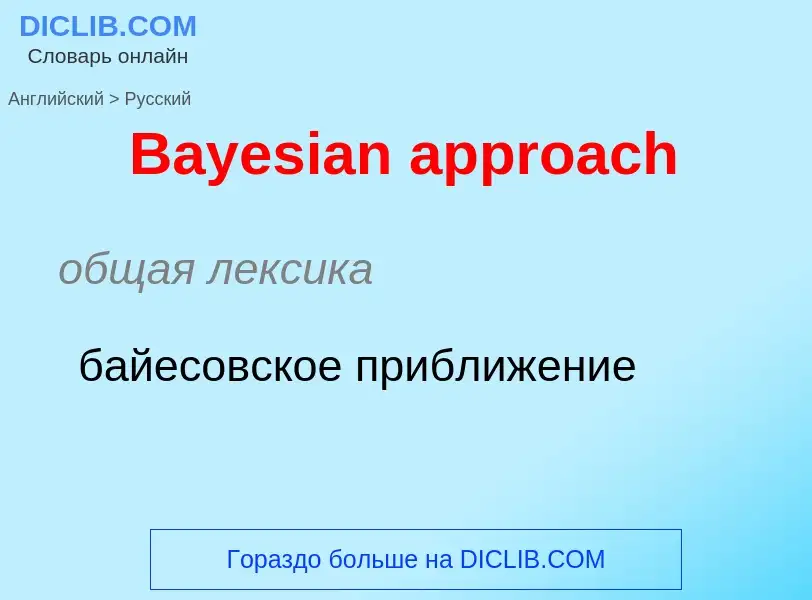Tradução e análise de palavras por inteligência artificial ChatGPT
Nesta página você pode obter uma análise detalhada de uma palavra ou frase, produzida usando a melhor tecnologia de inteligência artificial até o momento:
- como a palavra é usada
- frequência de uso
- é usado com mais frequência na fala oral ou escrita
- opções de tradução de palavras
- exemplos de uso (várias frases com tradução)
- etimologia
Bayesian approach - tradução para russo
общая лексика
байесовское приближение
байесовский подход, байесовский метод
общая лексика
байсов(ский) анализ
Definição
Wikipédia
Bayesian statistics is a theory in the field of statistics based on the Bayesian interpretation of probability where probability expresses a degree of belief in an event. The degree of belief may be based on prior knowledge about the event, such as the results of previous experiments, or on personal beliefs about the event. This differs from a number of other interpretations of probability, such as the frequentist interpretation that views probability as the limit of the relative frequency of an event after many trials.
Bayesian statistical methods use Bayes' theorem to compute and update probabilities after obtaining new data. Bayes' theorem describes the conditional probability of an event based on data as well as prior information or beliefs about the event or conditions related to the event. For example, in Bayesian inference, Bayes' theorem can be used to estimate the parameters of a probability distribution or statistical model. Since Bayesian statistics treats probability as a degree of belief, Bayes' theorem can directly assign a probability distribution that quantifies the belief to the parameter or set of parameters.
Bayesian statistics is named after Thomas Bayes, who formulated a specific case of Bayes' theorem in a paper published in 1763. In several papers spanning from the late 18th to the early 19th centuries, Pierre-Simon Laplace developed the Bayesian interpretation of probability. Laplace used methods that would now be considered Bayesian to solve a number of statistical problems. Many Bayesian methods were developed by later authors, but the term was not commonly used to describe such methods until the 1950s. During much of the 20th century, Bayesian methods were viewed unfavorably by many statisticians due to philosophical and practical considerations. Many Bayesian methods required much computation to complete, and most methods that were widely used during the century were based on the frequentist interpretation. However, with the advent of powerful computers and new algorithms like Markov chain Monte Carlo, Bayesian methods have seen increasing use within statistics in the 21st century.


